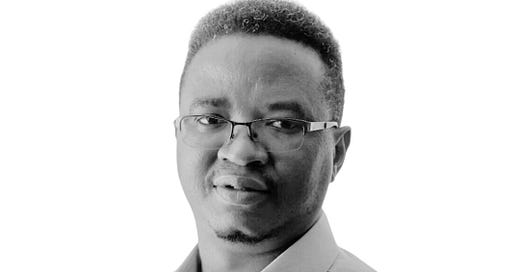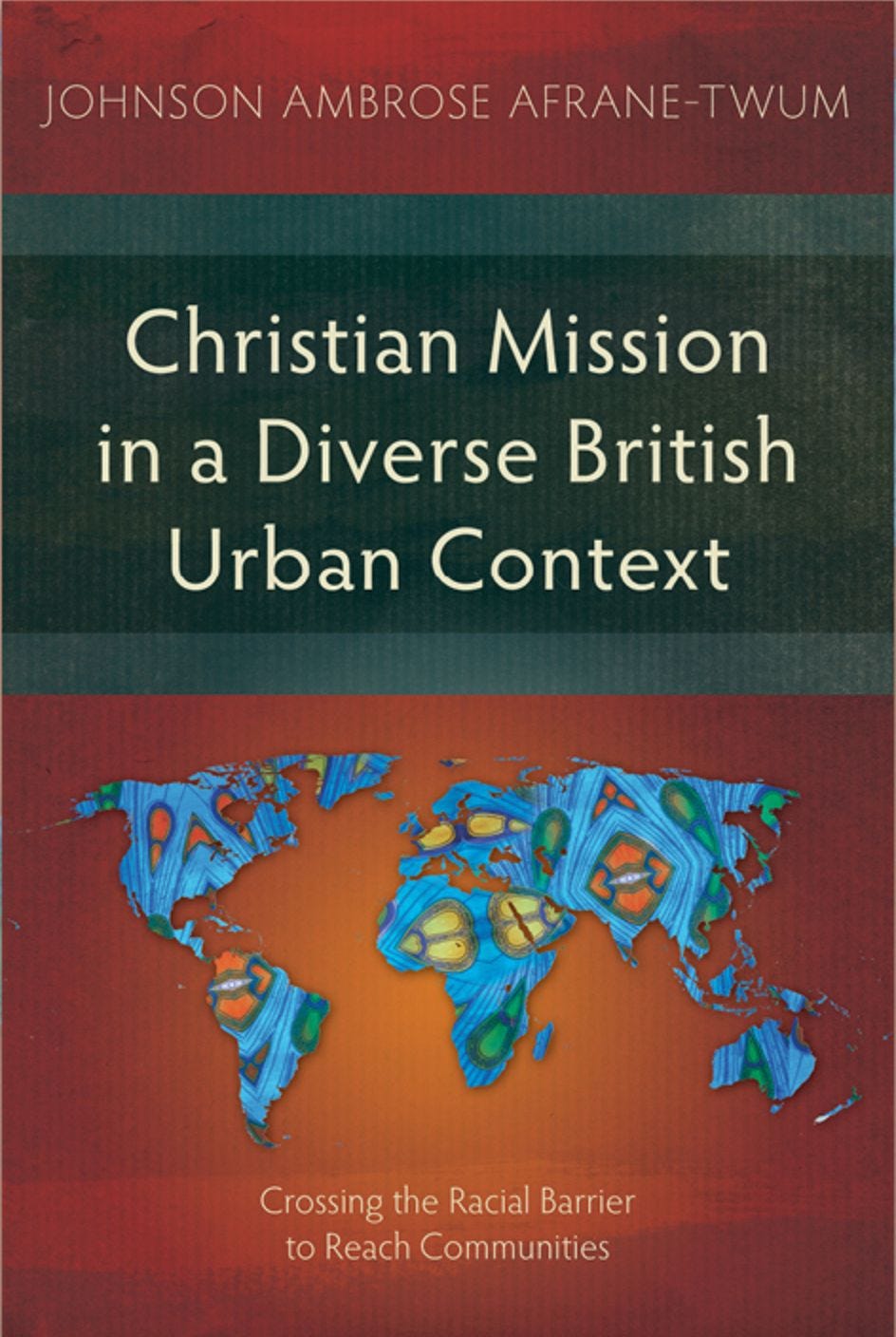Post-Christian West and Post-Western Christianity
Migration, Diversity, and Re-evangelising the West
Welcome to “Global Witness, Globally Reimagined,” where we dream about mission in a postcolonial world. Every Thursday, I share one thought that has spoken to me in the week, some resources that I trust will be helpful to you, and three exciting quotes about mission to give you something to think about. I pray one of these will energise you in the coming week.
1. Thought I Can’t Shake Off
I am looking forward to speaking in Nairobi next week at the African Society for Evangelical Theology (ASET) conference themed “The Mission of God and God’s Church: Missiology in African Christianity.” I am so excited. This is an extremely important topic now when the African church is trying to figure out how best to bear witness for Christ not only in Africa but also around the world, amidst an ever-growing spiritual revival that has gone on in Africa for decades and an increasing propensity for (especially young) people to migrate out of the continent. I will be making an argument that the models of mission that have existed for the past 500 years (and mostly practiced in the past 200 years) need to give way to new ways of sharing the gospel among the nations in the postcolonial world of the twenty-first century and that African Christianity can help us discover these new ways. Of course, if we go back fifteen centuries, African Christians shared with the world their ways of engaging in mission—monasticism.
About the conference, Joshua Barron says, “For the rest (and majority) of us, if you have any free time available on Friday–Saturday, 8–9 March, you should consider registering to virtually attend this year’s ASET Conference (the conference fee for virtual attendance is $10), or parts of it. Please, keep us in your prayers.
As I prepared for the conference, I came upon an old (2005) article by Andrew Walls, and thought a quote from him will suffice for the newsletter this week. So, here we go:
The great European migration has left a strange legacy, a post-Christian West and a post-Western Christianity. Christianity was once the religion of confident technological advance and rising affluence and sometimes those things were seen as a mark of God's favor. Christianity now will increasingly be associated mostly with rather poor and very poor peoples, and with some of the poorest countries on earth. And people from the non-Western world will be the principal agents of Christian mission right across the world. Even in the Western world they will have a significant place, for it may be that in some areas of the West at least, Christianity will increasingly be associated with immigrants. The religious aspect of the new reverse migration that first attracted attention was that of a new visibility of non-Christian religions—Hindu temples appearing in or beside redundant churches; the statistics that showed that English Muslims now outnumber all English non-Anglican Protestants put together; the realization that the arguments long used to justify Catholic and Anglican schools within the British state education system could now be used to justify Islamic schools there. The importance of the Christian aspect of the new migration is only just beginning to be realized. It is clear that these churches are among the few expanding sectors of European Christianity. It is also clear that they are beginning to have an impact on the indigenous Western population. For some who are untouched by traditional cultural Christianity, immigrants from Africa or Asia, and in the case of Spain, from Latin America, provide the first contact with Christianity as a living faith.
The new diaspora differs from the great European migration in significant respects. In the old migration, ties with the original homeland gradually faded and were often completely broken. The new diaspora, like that of second-century Christianity in Rome, seems to be keeping its ties with its places of origin, maintaining networks across the world. Everyone in Freetown or Lagos has a relative in Chicago. And the economies of African states probably gain more from the remittances of their former citizens living in the West than they do from Western development aid. Such factors tie together the issues of mission in the Western and the non-Western world. They reveal something of the possible networks by which that mission may be affected as Christians of African, Asian, and Latin American origin and domicile take on leadership in world mission. The context of that mission includes both legacies from the great European migration and the factor of the new migration, and especially that of the new Christian diaspora. The combination presents us with a situation in which we may realize the body of Christ in a whole new way or fracture it by self-seeking and neglect.1
2. Resources I am Enjoying
Book: Johnson Ambrose Afrane-Twum: Christian Mission in a Diverse British Urban Context: Crossing the Racial Barriers to Reach Communities
In this outstanding book, Dr Johnson Afrane-Twum explores the idea of partnership with a view to maximise missional gains. Particularly, he wonders how, with the mushrooming of African Christians and congregations all over the UK, there could be a productive collaboration between them and the local British congregations for a more impactful mission and evangelism. Of course, Johnson’s concern is not peculiar to African congregations in the UK. All congregations must seek to engage their communities in the sharing of the gospel. More often than not, this kind of work requires crosscultural skills. Beyond the immediate implications of the research in this book to African churches and local British congregations, it posits the question, “what do we all do with the multiculturalism that now pronouncedly characterises the church of God?”
3. Quotes I am Pondering
A natural effect of the missionary outlook of modern times was a certain tendency to confuse their institutionalized Christianity with Christ, to make the former the bestower of salvation. By fastening so intently on the 'sheer paganism' and awfulness of African 'heathen superstitions' Western missionaries were considerably less conscious of the 'heathen' as men with their utterly human fears and joys, hopes and disappointments, and yearnings for salvation. — Kwame Bediako
God’s voice from the margins is distinct. They need to be heard and their vision of life should form the basis of theological education for their transformation. We need a new theological framework, language and practices to accommodate their yearning for life. — Wati Longchar
Cultural identities are temporary, serving to yield us as Christians to the fullness of our identity with Christ. Paradoxically, culture snatches us away from Christ, it denies that we are His; yet when it is best understood, at its meeting with Christianity, culture drives us to Christ and surrenders us to Him, affirming us to be permanently, totally and unconditionally His own. — John Mbiti
I pray that you will be faithful in whatever God calls you to do this week.
Andrew Walls, “Migration and Evangelization: the Gospel and Movement of Peoples in Modern Times” Tie Covenant Quarterly 63/1, (2005), 3-28.




